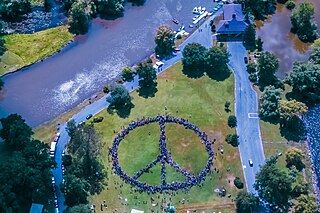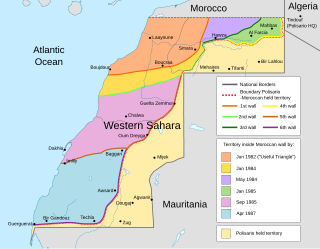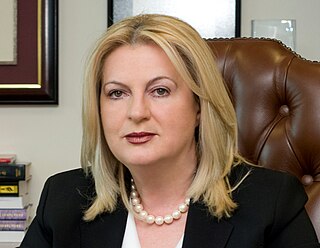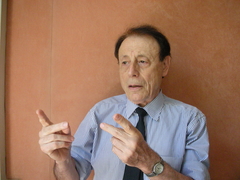Roger D. Fisher was Samuel Williston Professor of Law at Harvard Law School and director of the Harvard Negotiation Project.
Conflict resolution is conceptualized as the methods and processes involved in facilitating the peaceful ending of conflict and retribution. Committed group members attempt to resolve group conflicts by actively communicating information about their conflicting motives or ideologies to the rest of group and by engaging in collective negotiation. Dimensions of resolution typically parallel the dimensions of conflict in the way the conflict is processed. Cognitive resolution is the way disputants understand and view the conflict, with beliefs, perspectives, understandings and attitudes. Emotional resolution is in the way disputants feel about a conflict, the emotional energy. Behavioral resolution is reflective of how the disputants act, their behavior. Ultimately a wide range of methods and procedures for addressing conflict exist, including negotiation, mediation, mediation-arbitration, diplomacy, and creative peacebuilding.
The Khartoum Resolution of 1 September 1967 was issued at the conclusion of the 1967 Arab League summit, which was convened in Khartoum, the capital of Sudan, in the wake of the Six-Day War. The resolution is famous for containing what became known as the "Three Noes" or "The Three Noes of Khartoum".

The School of Advanced International Studies (SAIS) is a graduate school of Johns Hopkins University based in Washington, D.C. The school also maintains campuses in Bologna, Italy and Nanjing, China.

Peacebuilding is an activity that aims to resolve injustice in nonviolent ways and to transform the cultural and structural conditions that generate deadly or destructive conflict. It revolves around developing constructive personal, group, and political relationships across ethnic, religious, class, national, and racial boundaries. The process includes violence prevention; conflict management, resolution, or transformation; and post-conflict reconciliation or trauma healing before, during, and after any given case of violence.

Francis Mading Deng is a South Sudanese politician and diplomat who served as the newly independent country's first ambassador to the United Nations from 2012 to July 2016. He played an important role in advancing a Responsibility to Protect (R2P) when he was the UN's Special Representative on Internally Displaced Persons.
Matthew Levitt is an American political scientist. He is an expert in Hamas.

Itamar Rabinovich is the president of the Israel Institute. He was Israel's Ambassador to the United States in the 1990s and former chief negotiator with Syria between 1993 and 1996, and the former president of Tel Aviv University (1999–2007). Currently he is professor emeritus of Middle Eastern History at Tel Aviv University, distinguished global professor at New York University and a distinguished fellow at the Brookings Institution.

This is a list of published books in English which according to reliable sources deal with the general subject of Western Sahara.
Mark N. Katz is a professor of government and politics at George Mason University Schar School of Policy and Government in Fairfax, Virginia, United States, and a nonresident senior fellow at the Atlantic Council in Washington, DC. He researches and teaches classes about Russian politics and foreign policy, revolution, and the "War on Terror."

Edita Tahiri is a leader of the independence of Kosovo, the former deputy prime minister, minister of foreign affairs and peace negotiator. She was also minister for dialogue, minister of public administration and member of parliament in five terms. She was the chief negotiator of the Republic of Kosovo for seven years (2011-2017) in the EU facilitated dialogue, with US support, on normalization of neighborly relations with Serbia. She was the Deputy Prime minister responsible for foreign policy and national security (2011–2014). She was the Minister of Foreign Affairs of Kosovo for ten years in difficult time of liberation and independence of Kosovo (1991–2000). She is a signer of the Declaration of Independence of the Republic of Kosovo, on 17 February 2008. She is the President of reformist party, the Democratic Alternative of Kosovo (ADK) and Chair of the Regional Women's Lobby in Southeastern Europe (RWLSEE). She is member of the Women Waging Peace Network. and member of the Mediterranean Women's Mediators Network.
The International Peace and Security Institute or IPSI is a division of Creative Learning an international nonprofit organization with 501(c)(3) status headquartered in Washington, D.C. Founded in 2009, IPSI was acquired by Creative Learning in November 2016. The Institute's objective is to train young peacebuilding and International Justice leaders in the skills needed to effectively intervene in violent conflict scenarios in pursuit of sustainable peace.
State collapse is a sudden dissolution of a sovereign state. It is often used to describe extreme situations in which state institutions dissolve rapidly.
David Harland is a New Zealand diplomat who has been the executive director of the Centre for Humanitarian Dialogue (HD), a Geneva-based foundation that specialises in the mediation of armed conflict, since 2011. Harland served as a witness for the prosecution in a number of cases at the International Criminal Tribunal for the former Yugoslavia.

Guy Olivier Faure is a professor of International Negotiation. He is currently president of the Brussels Diplomatic School (ULB/CERIS).
Fen Osler Hampson is Chancellor's Professor and Professor of International Affairs at Carleton University and President of the World Refugee & Migration Council. He was a Visiting Fellow at The New Institute and a Distinguished Fellow and Director of Global Security Research at The Centre for International Governance Innovation. He was Co-Director of the Global Commission on Internet Governance. He was elected a Fellow of the Royal Society of Canada.
Daniel P. Serwer is a Senior Fellow at the Foreign Policy Institute of the Johns Hopkins School of Advanced International Studies (SAIS). He was previously professor of Practice of Conflict Management as well as director of the Conflict Management and American Foreign Policy programs at SAIS. Serwer is also a research scholar at the Middle East Institute in Washington D.C.
Pamela S. Chasek is a professor in the Department of Political Science at Manhattan College, and editor of the Earth Negotiations Bulletin. She was an adjunct professor at Columbia University's School of International and Public Affairs from 1996-2000. She is widely published on the topic of international environmental policy.

Aaron (Aharon) S. Klieman was an American-born Israeli historian of international relations who developed the field of international affairs in Israel and abroad. Klieman researched a wide variety of fields in political science including history, arms sales, and geopolitics. He was the Dr. Nahum Goldmann Chair in Diplomacy and lecturer on international relations in the Department of Political Science at Tel-Aviv University, and was the founding director of the Abba Eban Graduate Program in Diplomatic Studies. A native of Chicago, Illinois, his PhD is from The Johns Hopkins University School of Advanced International Studies, with an M.A. from the School of International Affairs at Columbia University in Middle Eastern studies.







